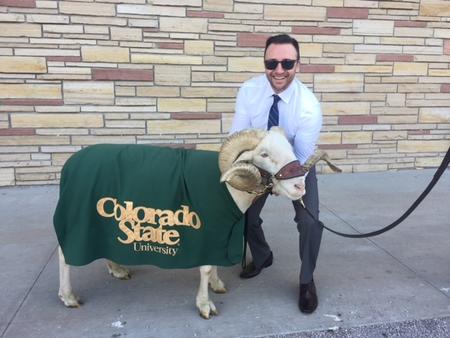Jan. 6, 2022: As the new Director of Equity and Community Engagement for the Office of Behavioral Health (OBH), I look forward to listening and learning from our internal and external stakeholder groups. Community engagement provides an opportunity to collaborate with the community. I often use the term community empowerment instead of community engagement, as we have the obligation to provide a space where a community can elevate their voices and enact change.
I was raised in rural northeast Colorado in a primarily agricultural community. My family worked in the fields, which taught me a great deal about hard work and the importance of supporting frontier communities with a diverse workforce. From talking with immigrants to farmers, I learned about varying views and approaches to behavioral and physical healthcare. I plan to leverage my bilingual and multicultural skills to connect with farming communities in Yuma to urban settings in the Denver metro area.
As my role evolves, I want to promote and instill my community empowerment framework into the work at OBH and the Colorado Department of Human Services (CDHS) and ultimately the new Behavioral Health Administration by incorporating a human-centered design thinking that revolves around people with lived or living experience to build solutions. Human-centered design is based on a “philosophy that empowers an individual or team to design products, services, systems, and experiences that address the core needs of those who experience a problem” (DC Design, 2017). I plan to leverage human-centered design when it comes to the suite of OBH resources and services, in addition to having an equitable, diverse, and inclusive (EDI) lens for outreach and access to services. As part of this EDI work, I look forward to working with internal departmental colleagues within OBH and CDHS by lending a consultative EDI analysis to support existing programming efforts and new initiatives for services provided to our communities.
The need for human-centered design and EDI is prevalent, specifically with youth. We have a crisis when it comes to youth violence; in recent months several of our young people have been shot. I want to hear from youth directly on best ways to support them and work alongside community based organizations, school systems, and health care institutions that responded to our youth during the shootings in our Aurora community.
In addition, there is no shortage of hard news directly affecting our communities–the most recent examples being the Marshall Fire in Boulder County and the shootings in Denver and Lakewood. We want to be responsive to those impacted by these tragedies and so many others by providing appropriate behavioral and mental health resources. Whether it’s gun violence, an increase in overdose deaths, or other factors impacting our youth, my goal is to share and promote our services with an EDI lens.
Community empowerment is a robust field with several approaches from human-centered design, from a community learning model to a public participatory model. Each approach provides a unique opportunity to learn from the community. My ultimate goal is to be responsive to statewide voices by being an engaged and authentic thought partner to new and innovative opportunities at the intersection of EDI and behavioral health.
René González
(He/His/El)
